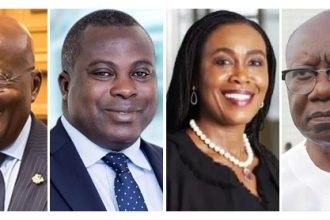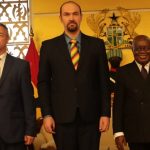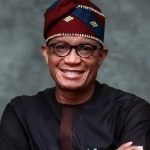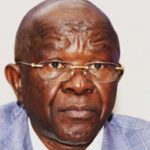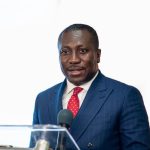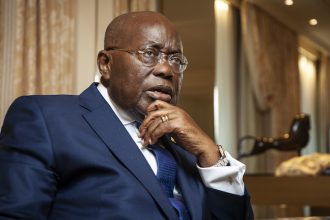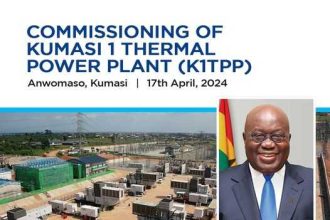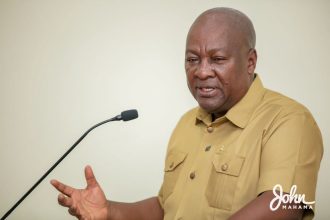increasing cost of goods & services, collapsing cedi, high exchange rates & fuel price hikes on agenda; IMF bailout under consideration
All the people who matter in the Akufo-Addo government, the ruling New Patriotic Party (NPP) and friends of the government, are either at the Peduasi Lodge near Aburi or heading there today to subject themselves to some critical thinking on how to rescue the economy from increasing cost of goods and services, the high exchange rates and hikes in fuel prices.
Part of the crisis meeting which started yesterday, is expected to last till Sunday, March 20, 2022, with the biggest discussion on the table being whether the government should go to the International Monetary Fund (IMF) for a policy credibility and a bailout to rescue the economy which analysts have concluded has been mismanaged.
The deliberations will be chaired by President Akufo-Addo, the Vice-President Mahamudu Bawmuia, with Ministers of State, senior NPP members other government appointees present will also discuss whether the government should continue to push through with the E-levy Bill or resort to the IMF, in the face of the current fiscal hurdles.
Ahead of the crisis meeting, a prominent cousin of the President and founder of the pro-NPP think tank, Danquah Institute, Gabby Asare Otchere-Darko, has called for a national debate on what he calls the “tough” economic decisions that “confront” Ghana currently.
In a tweet today, Mr Otchere-Darko, said: “2022 began without the usual $3 billion injection of Eurobond cash. the government’s post-COVID recovery programme, GhanaCARES, “hinged, partly on an E-levy” which, he surmises, “Parliament may not even OK”.
“There should be a national debate: do we want IMF or E-Levy or both or none? Tough decisions confront Ghana”, President Nana Akufo-Addo’s cousin said.
A couple of weeks ago, international rating agency Fitch, said Ghana can gain access to the international capital market again if the country opts for a programme with the International Monetary Fund (IMF).
The World Bank office in Ghana through its Country Director, Pierre Laporte for Ghana, Liberia, and Sierra Leone also painted a dire situation for the Ghanaian economy.
A lecturer at the University of Ghana, Professor Ransford Gyampo, has called on President Akufo-Addo, to reshuffle the managers of the country’s finances and the economy to enable him to tap into fresh ideas and energies in helping to sail the country through the current economic hardships.
According to Prof Gyampo, the country is currently in hard times and, although he believes President Akufo-Addo still has the men to help him bring respite, it will be much better if he would look outside his party and, where necessary, bring onboard other Ghanaians to help rescue the economy.
Prof Gyampo, said these in an open letter to the President on the current hard times being experienced by Ghanaians.
He gave the president a nine-point suggestion that he believes can help restore the economy if the president heeds.
Among them, Prof Gyampo, suggested that President Akufo-Addo, should reduce the size of his government now by realigning some functionally duplicative ministries and dropping some ministers.
“Some proposals can be made to this effect, but a government that wants to lead by example in these hard times should know the ministries that are a complete waste and drain on our limited resources and either realign or scrap them,” he wrote.
If necessary, Prof Gyampo, also proposed that Nana Akufo-Addo, reduce his own salary and that of his remaining appointees by 30 per cent, and reduce or completely suspend the payment of all the allowances and per diems that are given to people who already earn huge salaries.
Apart from the Presidency, Prof Gyampo also wants the President to reduce or completely withdraw the fuel coupons that grant free fuel to all appointees, friends and family members so all will buy fuel and be frugal with the little they have.
Meanwhile, an Economist and former Board Chairman of the Ghana Revenue Authority (GRA), Professor Stephen Adei has refuted claims that Ghana’s economy is on the verge of collapse.
Speaking in an interview on JoyNews’ Upfront, he said the economy is not collapsing but “we are in difficult times.”
According to him, the country’s economy is stronger “than the word broke.” His comment comes after an economist with the University of Ghana Business School (UGBS), Prof. Godfred Alufar Bokpin, warned of possible collapse of Ghana’s economy.
Speaking on the Super Morning Show, Prof. Bokpin reiterated that as the country’s debt stock hits high distress levels, the current debt situation could get worse by the end of September if proper interventions are not implemented.
Ghana’s current public debt stock stands at a staggering ¢341.8 billion with a corresponding debt to GDP ratio of more than 77% as of September ending 2021.
This means if the country should share this amount across the country’s 30.8 million population, everyone will owe approximately ¢11,000.
In terms of interest payments on our borrowings, Ghana has spent on average 147 billion Ghana cedis, which is 47 billion Ghana cedis more than our projected revenue plus grants for 2022.
In the first quarter of 2022, government has indicated that it will borrow a total of ¢24.5 billion from the domestic market of which ¢20.7 billion will be used to service existing debt in the local market, leaving government with just ¢3.8 billion to finance other expenses.
Commenting on the country’s debt stock, Prof Adei proposed that the country’s expenditure be reduced.
“If you are exceeding your income, then you must accept to live below your income, which is the easy way, otherwise if you are earning ¢3,000 and you are in debt of ¢10,000 you cannot day to day spend ¢3,000.
For you to get out of the rag you will have to cut your expenditure to ¢2,000 because you must service your debt. So we are in that situation as a country,” he said.
He explained that although cutting expenditure might be difficult for the government, especially nearing an election period, that is the right way to go.
“… And they [government] must thank God that this crisis has come now and not 2023, because if they don’t go for the hard one now, which normally will take about 18 months to go over this type of hunch, then they have a good chance by the middle of 2023 to see some good results in 2024.
If not, things would get worse and they want to prevent being thrown out of government, they would be thrown out anyway,” he said.


